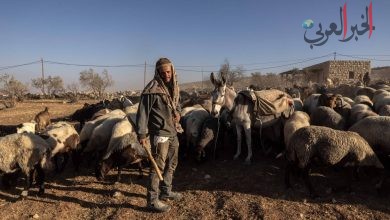Maximizing Clean Growth Grants Opportunities for Greater Birmingham and Solihull in 2025
The pursuit of sustainable growth is becoming increasingly important for regions worldwide, and the Greater Birmingham and Solihull area is no exception. With the introduction of Clean Growth Grants, local stakeholders have a unique opportunity to drive regional development analysis in a way that promotes environmental responsibility while supporting economic advancement. This initiative aims to attract investment in green technologies and innovative solutions that can reshape the area’s future.
As we look towards 2025, these grants present a strategic avenue for businesses and organizations within Greater Birmingham to align their goals with broader sustainability objectives. By tapping into available resources, local entrepreneurs can enhance their projects, demonstrating a commitment to reducing carbon footprints and fostering a greener economy.
Understanding the impact of Clean Growth Grants is essential for maximizing their potential. An in-depth assessment of regional development analysis will allow stakeholders to identify key growth areas, facilitating collaboration among public, private, and community sectors. Harnessing this synergy can lead to transformative projects that not only benefit the environment but also create job opportunities and stimulate economic activity.
Identifying Eligible Projects for Clean Growth Grants
Clean Growth Grants present a significant opportunity for local initiatives aiming for sustainability and environmental enhancement in Greater Birmingham and Solihull. Identifying eligible projects requires a clear understanding of the specific criteria set forth by grant providers. Projects should demonstrate potential for reducing carbon emissions, promoting renewable energy, or enhancing energy efficiency within communities.
Assessment often begins with evaluating the alignment of a project’s goals with local sustainability targets. Initiatives can span from small community-led efforts, such as urban greening and rewilding, to larger-scale programs focused on renewable energy infrastructure. Projects should also incorporate budget forecasting to ensure financial viability over the grant period. This allows organizations to present solid forecasts that illustrate how funds will be allocated and any potential returns or benefits.
In Solihull, collaborations between local businesses and community groups can enhance project validity. Initiatives that not only focus on environmental aspects but also stimulate economic growth and job creation are particularly appealing. Stakeholders need to consider the long-term impacts and how these projects will adapt to changing circumstances.
Moreover, projects that engage residents and educate them on sustainability practices may receive a favorable view from grant assessors. Emphasizing community involvement highlights a project’s potential for longevity and greater impact. By aligning project proposals with both environmental goals and community needs, applicants can strengthen their cases for receiving Clean Growth Grants.
Navigating the Application Process for Funding
Securing funding through Clean Growth Grants in Greater Birmingham & Solihull requires a methodical approach. Begin by familiarizing yourself with the grant’s guidelines and requirements. Thoroughly read the eligibility criteria to ensure your project aligns with the objectives of promoting sustainability and clean technology.
Next, outline your project proposal, emphasizing innovation and potential impact. Clearly articulate how your initiative addresses environmental challenges and contributes to the local economy. Highlight aspects such as collaboration with innovation hubs and any training programs that will enhance skills in the community.
Engage with local agencies or organizations that may assist in the application process. These partnerships can offer insights into best practices and provide valuable feedback on your proposal. Additionally, consider attending workshops or information sessions focused on Clean Growth Grants to strengthen your understanding and network.
When completing the application, ensure clarity and precision in your writing. Use straightforward language, presenting your ideas in a logical sequence. This will help reviewers grasp the essence of your proposal quickly. Don’t forget to outline your budget comprehensively, specifying how the funds will be utilized toward achieving the project goals.
After submission, be prepared to answer questions or provide further details as needed. Regular follow-ups with the funding body may demonstrate your commitment and eagerness to see the project through. By taking these steps, you can enhance your chances of securing funding that aligns with the clean growth agenda in Greater Birmingham & Solihull for 2025.
Measuring the Impact of Funded Initiatives on Local Communities
Effective measurement of funded initiatives is crucial to understanding their actual impact on local communities in Greater Birmingham and Solihull. By assessing the outcomes of various programs, we can gain insights into how these initiatives contribute to economic growth, environmental sustainability, and community well-being.
- Direct Economic Benefits: Initiatives funded by the Clean Growth Grants often lead to job creation and skill development. For instance, workshops like the fintech solutions workshop Solihull and legal support workshop West Midlands can enhance local employment opportunities.
- Environmental Improvements: Projects focused on electrification vehicles opportunities West Midlands showcase measurable reductions in carbon emissions. Communities can track these changes and assess their impact on local air quality.
- Community Engagement: The establishment of innovation hubs training Greater Birmingham fosters community involvement. Participant feedback and surveys can provide qualitative data on satisfaction and perceived value, offering insight into how these hubs affect community cohesion.
Data collection methods such as surveys, interviews, and public forums will ensure a comprehensive understanding of these initiatives’ effects. As we assess the outcomes, the insights gathered can aid in refining future programs and maximizing benefits to the community. For more information on accessing resources and support, visit https://www.gbslepgrowthhub.co.uk/.
Building Partnerships to Enhance Grant Utilization
Strategic partnerships are key to maximizing the impact of Clean Growth Grants in Greater Birmingham and Solihull. By collaborating across sectors, organizations can pool resources and expertise, creating synergies that drive successful project outcomes. Such collaborations not only amplify the reach of initiatives but also enhance budget forecasting, allowing stakeholders to design more informed and realistic financial strategies for Solihull’s growth.
Case studies highlighting vocational training programs in Solihull reveal that partnerships between educational institutions and local businesses can address skills gaps while meeting the demands of clean growth. By sharing data analytics and trends from the West Midlands, stakeholders gain insights into emerging sectors, helping to pinpoint areas where investment and training are most needed.
Establishing networks among community organizations, local authorities, and private sector partners can streamline the grant application process. These collaborations often lead to a more comprehensive understanding of eligibility criteria and strengthen the quality of submitted proposals. By leveraging collective knowledge and resources, partners can establish a robust framework that not only improves the likelihood of securing funding but also enhances ongoing project sustainability.








